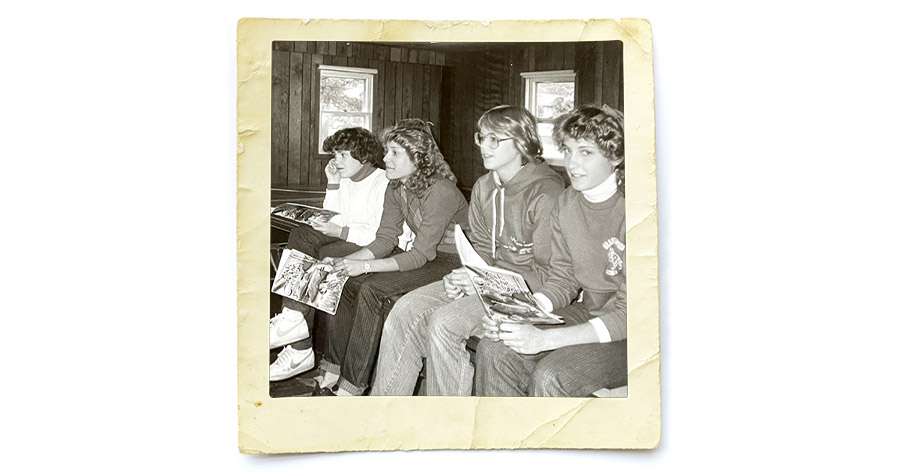
Summer days at Shetek Lutheran Ministries, a church camp on Keeley Island in southwest Minnesota, circa 1984.
The chirping of crickets, the twinkling of stars, the smell of a good campfire, and newfound friends are all key ingredients for summer camp. The Christian Camp and Conference Association has over 800 member institutions, and after a year when many camps curtailed programs due to the pandemic, the ministry that these organizations provide feels more valuable than ever — as do the feelings of exuberance, peace, and joy that such camps generate.
Of course, the camp experience isn’t always perfect. Sue Neeb’s first days of Bible camp brought on such a bout of homesickness that her mother was called to retrieve her. By the time her mother arrived back at camp, Neeb’s homesickness had faded enough that the then 10-year-old opted to stay for the duration.
“After that, I really enjoyed going to camp,” says Neeb, who’s in her second year on the Board of Directors of Anabaptist Mennonite Biblical Seminary in Elkhart, Indiana. “It was something to look forward to every summer: being outside in nature, making new friends, playing games, swimming, boating, campfires — a lot of fun.” In her late teens, she joined the summer staff at Hiawatha Youth Camp, a nondenominational camp in Michigan’s Upper Peninsula. She worked in the kitchen one summer and as a counselor for two others. Along with all the outdoorsy fun, camp offered a satisfying worship component.
“Taking a child – or yourself – out of a daily routine and allowing them to experience nature and worship in new and different ways helps them to be open to spiritual ideas and formation,” she says. “Camp taught me the importance of a daily devotion or prayer. It also helped me think about how I could follow God, and how to look at my future with intention and clarity.”
Laurie Skow-Anderson wasn’t a camper as a child, but she spent one summer during college as a camp counselor at Shetek Lutheran Ministries in Slayton, Minnesota, and later served on Shetek’s board.
“Camp was my first opportunity to provide leadership,” says Skow-Anderson, who is bishop of the Northwest Synod of Wisconsin of the Evangelical Lutheran Church in America (ELCA) and in her first year as a member of the board at Wartburg Theological Seminary in Dubuque, Iowa. “It was also a place where my creativity was welcomed, accepted, and celebrated.”
Out of her cohort of about 20 counselors that summer, six went on to seminary. “It’s not a surprise that Bible camp counselors go to seminary – seminaries know this,” she says. But it’s worth underscoring why. “Camp was the place where I came to understand the unconditional love and grace of God,” Skow-Anderson says. “If there’s one theological message that young people need today, that’s it. It’s a message the entire world is desperate to hear.”